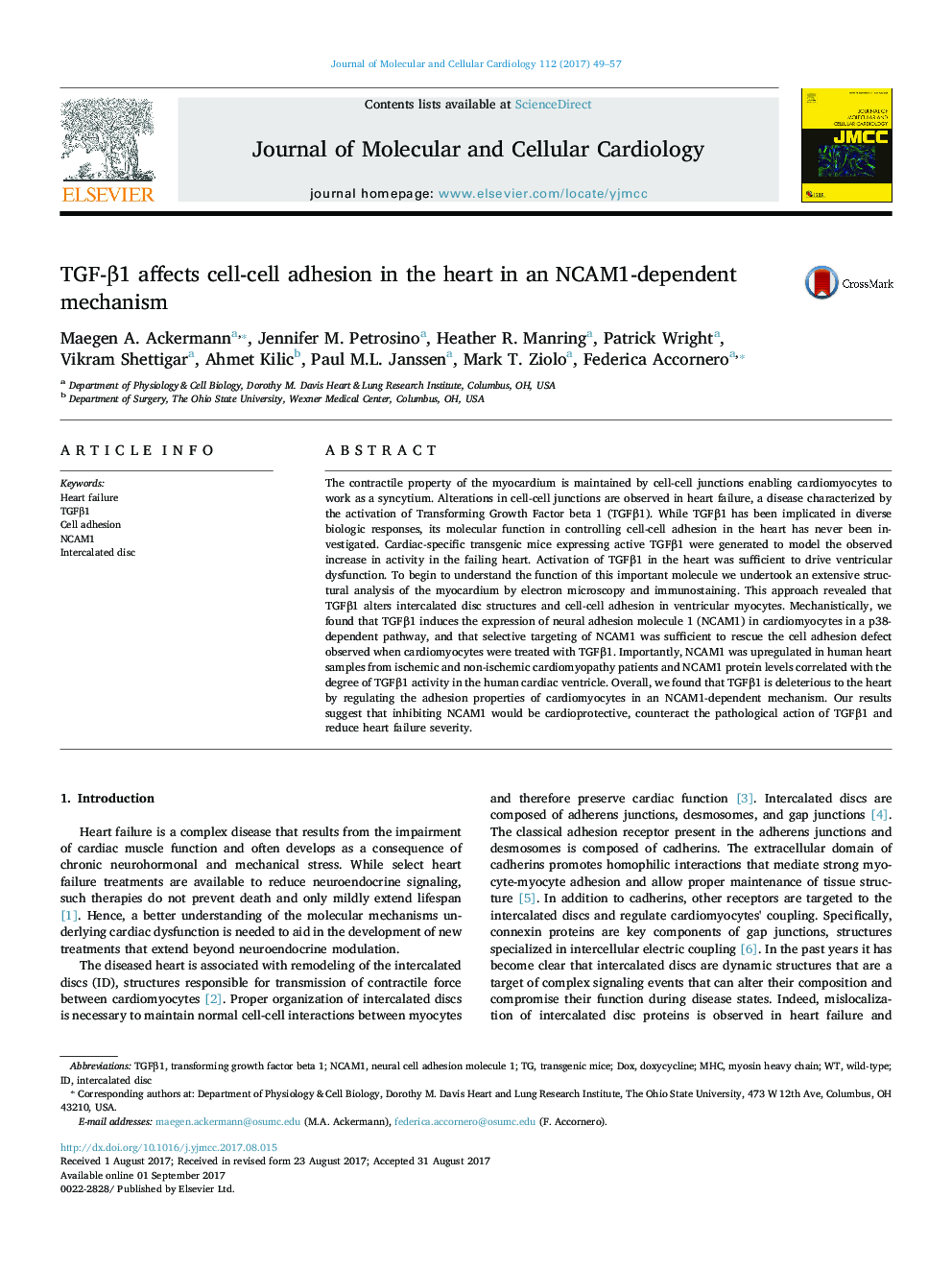| کد مقاله | کد نشریه | سال انتشار | مقاله انگلیسی | نسخه تمام متن |
|---|---|---|---|---|
| 5533434 | 1550394 | 2017 | 9 صفحه PDF | دانلود رایگان |

- TGFβ1 affects intercalated disc composition leading to ventricular dysfunction.
- TGFβ1 alters cardiomyocyte adhesion through NCAM1.
- NCAM1 in failing human hearts is driven by TGFβ1 activation.
- Targeting NCAM1 counteracts TGFβ1 deleterious effects in the heart.
The contractile property of the myocardium is maintained by cell-cell junctions enabling cardiomyocytes to work as a syncytium. Alterations in cell-cell junctions are observed in heart failure, a disease characterized by the activation of Transforming Growth Factor beta 1 (TGFβ1). While TGFβ1 has been implicated in diverse biologic responses, its molecular function in controlling cell-cell adhesion in the heart has never been investigated. Cardiac-specific transgenic mice expressing active TGFβ1 were generated to model the observed increase in activity in the failing heart. Activation of TGFβ1 in the heart was sufficient to drive ventricular dysfunction. To begin to understand the function of this important molecule we undertook an extensive structural analysis of the myocardium by electron microscopy and immunostaining. This approach revealed that TGFβ1 alters intercalated disc structures and cell-cell adhesion in ventricular myocytes. Mechanistically, we found that TGFβ1 induces the expression of neural adhesion molecule 1 (NCAM1) in cardiomyocytes in a p38-dependent pathway, and that selective targeting of NCAM1 was sufficient to rescue the cell adhesion defect observed when cardiomyocytes were treated with TGFβ1. Importantly, NCAM1 was upregulated in human heart samples from ischemic and non-ischemic cardiomyopathy patients and NCAM1 protein levels correlated with the degree of TGFβ1 activity in the human cardiac ventricle. Overall, we found that TGFβ1 is deleterious to the heart by regulating the adhesion properties of cardiomyocytes in an NCAM1-dependent mechanism. Our results suggest that inhibiting NCAM1 would be cardioprotective, counteract the pathological action of TGFβ1 and reduce heart failure severity.
Journal: Journal of Molecular and Cellular Cardiology - Volume 112, November 2017, Pages 49-57